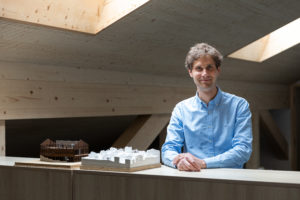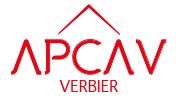
Photo Valérie Moulin ©
Today, the APCAV speaks with Guillaume Colin, Director of Construction, Land Planning, and Mobility for the Commune of Val de Bagnes, to discuss the LSR (Federal Law on Secondary Residences). This law was passed on March 11, 2012, and defines the conditions for constructing new homes and modifying existing homes in municipalities where more than 20% of residences are classified as secondary homes. It came into effect on January 1, 2016.
Guillaume, can you tell us about the situation of homes built before the vote on the Law on Secondary Residences (LSR), also known as Lex Weber?
Homes built before March 11, 2012, or that had valid building permits as of that date are free from any restrictions on use. These homes are not subject to any restrictions and can be used as either primary or secondary residences, at the owner’s discretion (ref. art. 10.ss LRS). The owner can rent the property to someone using it as a primary residence without losing its status as a secondary residence. Similarly, if the owner uses it as their primary residence, they are still free to sell it later as a secondary residence.
Which properties, then, are subject to restrictions on being designated as primary residences under the Law on Secondary Residences?
Any new home built in a municipality where more than 20% of residences are secondary homes must be designated as a primary residence. The occupants of these homes must live there permanently (ref. art. 3, let b LHR), which excludes occasional use as a secondary home or exclusive short-term rentals.
In Switzerland, and particularly in Valais, various laws apply to the construction or transformation of real estate, which can sometimes be confusing. Could you provide a brief overview of these laws and their purpose?
- First, there is the Cantonal Construction Law (LC) and its ordinance (OC). This law defines the procedures to be followed for building permits and works alongside the municipal zoning regulations, which set material rules such as density indices and building heights.
- Then, there is the Federal Law on Secondary Residences (LSR), previously mentioned. It limits the possibilities for enlarging homes that are free from usage restrictions and prohibits the construction of new secondary residences in the affected municipalities. Note that in the Commune of Val de Bagnes, 54.8% of residences are classified as secondary homes.
- The Federal Law on the Acquisition of Real Estate by Foreigners (LFAIE, known as Lex Koller) also plays an important role. It aims to prevent excessive foreign control over the Swiss real estate market, limiting the acquisition of property by non-residents.
- Finally, the Federal Spatial Planning Law (LAT) sets out broad principles related to land-use planning, focusing on preserving agricultural land and concentrating housing and activities in already urbanized areas.
What are the impacts of these laws if you own an apartment or chalet?
I own a property and…
- … I want to modify it. What are the main conditions to respect?
- If you are not Swiss and live abroad, the net surface area of your property after the modification must not exceed 200 m² (art. 10. OAIE).
- If your property is free from usage restrictions, it can be renovated, modified, or rebuilt without losing its status. However, if the property is enlarged, the additional space cannot exceed 30% of the original primary usable space. If the project does not meet this condition, it will either be subject to primary residence restrictions or must be used for tourist accommodations.
- … I want to sell it. What are the important points to consider?
- If your property exceeds 200 m², the buyer cannot be a foreigner under the terms of LFAIE. If it is larger than 200 m² and can be divided into multiple lots, these lots can be acquired by several individuals as long as no single lot exceeds 200 m².
- If your property is subject to primary residence restrictions, the new owner must use it as such.
- … I want to transfer it to my children. Is that possible?
- Under the LSR, if your property is free from usage restrictions, you can transfer it to your children. However, if it is subject to primary residence restrictions, your children generally cannot use it as a secondary residence. They must either live in it as a primary residence, rent it out long-term, or sell it to a permanent resident. The same rules apply in cases of inheritance, with some temporary exceptions in cases of hardship.
- Under LFAIE, exceptions are also made for heirs. In Valais, the legal office of the Land Registry handles LFAIE cases, and any questions should be directed to this office.
In all cases, regardless of your project, you can request the authorized plans from the Commune’s construction service for anything located in a building zone. This will allow you to verify that the current state of the property corresponds to the construction permit obtained.
More information on the easing of the law: https://www.admin.ch/gov/fr/accueil/documentation/communiques.msg-id-102429.html
Interview by Brigitte Borel, 13.10.2024
